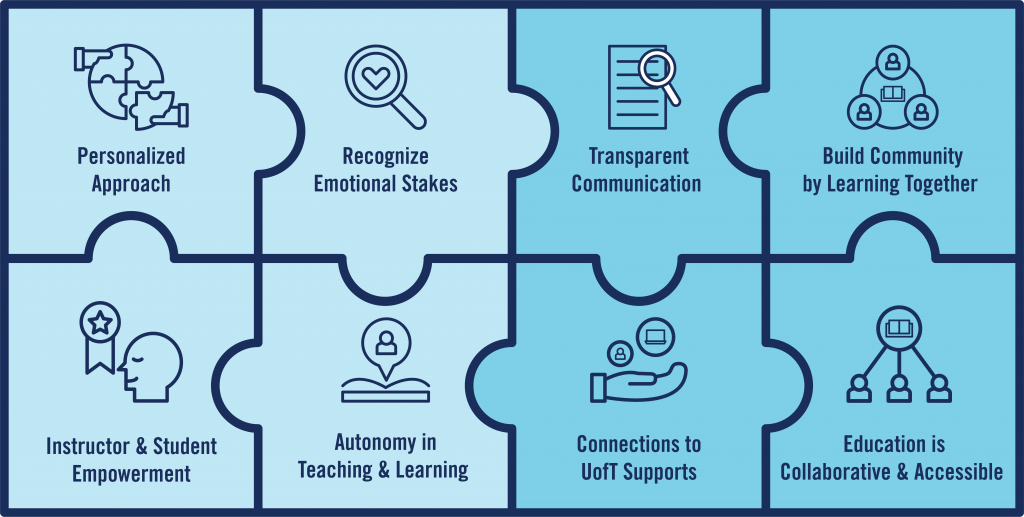
Written by Nicholas Smith – Design Research Assistant for Transforming the Instructional Landscape
The COVID-19 pandemic greatly accelerated the integration of digital technology into instructional spaces, introducing discomfort and uncertainty into previously familiar terrain. Building on the healthcare concept of “patient-centred care,” this report proposes a model of “learner-centred design” as a means of contending with this discomfort in the implementation of new learning spaces. By putting users first, we hope to build learning spaces that empower instructors to experiment with new technology while meeting our users where they are—no matter if they are a technological expert or a complete novice.

Drawing on qualitative data gathered by Transforming the Instructional Landscape (TIL) researchers over the summer of 2020, our report outlines how growth and empowerment can happen in new and uncomfortable learning spaces. We propose a model of “learner-centred education” that foregrounds eight principles of learner-centred design. With the principle “Personalized Approach,” for example, we underscore the importance of recognizing and building through instances of individual deviance. As learning spaces become increasingly diverse in online settings, it is integral to incorporate deviance and personalization into systems of support. Tied to this point is the principle of “Recognizing Emotional Stakes.”

Our research also found that it is important to recognize that learning spaces are not always places of empowerment. Especially in the midst of COVID-19, feelings of frustration and discomfort speak to how support in instructional space is not only about logistics or technology, but about accounting for the emotional stakes we bring to the spaces we learn and teach in. Collectively, our principles articulate how TIL can become an incubator for the incorporation of new technologies into teaching and learning, facilitating the emergence of new kinds of instructional space.
Want to learn more about the rest of our design principles?
0 comments on “How Online Learning can be Improved through Learner-Centered Design”